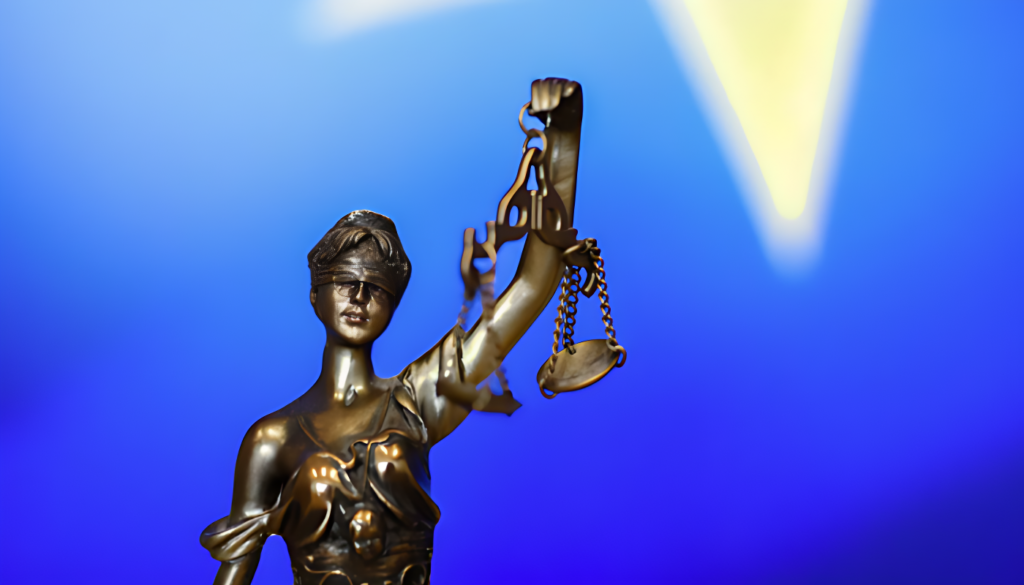
A recent report has raised alarms about the ongoing deterioration of the rule of law across the European Union, highlighting systemic challenges in key areas like the justice system, corruption, media freedom, and human rights.
Released by the Civil Liberties Union for Europe, the Liberties Rule of Law report reveals alarming trends regarding the decline of democratic standards within EU member states. This comprehensive 1,000-page annual report, based on input from 43 human rights organizations across 21 EU countries, reveals deepening issues related to transparency, judicial independence, and media independence.
Persistent Violations of Rule of Law Across EU
The report indicates that the rule of law is under severe strain in numerous EU countries, including Italy, Slovakia, Romania, and Hungary. The findings suggest that despite ongoing efforts, these nations are struggling with fundamental issues such as political interference in judicial processes and weakening democratic frameworks.
Viktor Z Kazai, a senior expert at the Civil Liberties Union for Europe, warned that the EU’s weak response to these rule of law violations is exacerbating the problem. “By allowing violations to persist, governments feel empowered to further undermine democratic principles,” he said.
Dividing EU Countries Based on Rule of Law Status
The report divides EU countries into groups based on their rule of law performance:
- Stagnators: Countries like Greece, Ireland, Malta, the Netherlands, and Spain show limited progress in improving their rule of law.
- Sliders: Nations like Belgium, France, Germany, and Sweden have seen some decline in specific areas, though they largely maintain strong legal foundations.
- Dismantlers: Countries such as Italy, Bulgaria, Croatia, Romania, and Slovakia are systematically weakening the rule of law.
- Repeat Offender: Hungary is repeatedly criticized for its consistent violation of rule of law standards within the EU.
On the other hand, countries like Estonia and the Czech Republic are noted for their positive efforts to improve the rule of law, with strong contributions from civil society organizations.
Key Issues: Justice, Corruption, and Media Freedom
The report highlights several critical areas where the EU’s rule of law is under threat:
- Justice System: Political interference, inadequate resources, and lack of access to legal aid continue to weaken the independence and efficiency of judicial systems in many EU states.
- Corruption: Transparency issues and weak law enforcement have eroded public trust in governments across the region.
- Media Freedom: Political pressures and media ownership concentration are stifling press independence, with growing harassment of journalists in several member states.
Civic Space and Human Rights at Risk
Civic space is also under threat, with governments passing restrictive laws on peaceful protests and freedom of assembly. Additionally, human rights abuses are on the rise, particularly in response to more stringent migration policies and the increasing discrimination faced by minorities.
EU Faces Growing External Challenges
Externally, the EU is grappling with rising far-right populism, the ongoing war in Ukraine, and shifting global dynamics that threaten its unity and resilience. Migration policies have become more restrictive, violating international law in some cases, further exacerbating the crisis.
Weak Enforcement Mechanisms and the Need for Action
Despite these mounting challenges, the EU’s enforcement mechanisms remain weak, making it difficult to effectively address rule of law violations. The report urges the European Commission to take stronger action by linking rule of law issues to funding decisions and enforcing accountability through Article 7 proceedings and infringement actions.
Conclusion: EU Must Act to Safeguard Democracy
The Liberties Rule of Law report emphasizes that without decisive action, the EU risks further democratic erosion and internal fragmentation. Strengthening rule of law enforcement is crucial to restoring trust in EU institutions and protecting human rights across the region.
As the EU faces increasing instability and external pressures, it must prioritize reinforcing the rule of law to safeguard its future as a beacon of democracy in the world.
